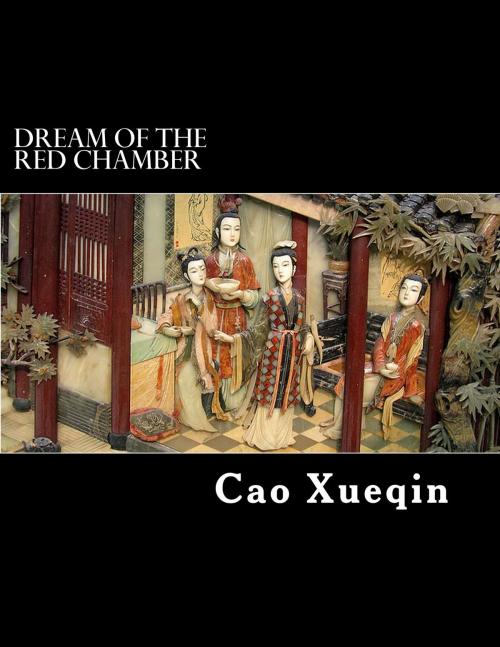Dream of the Red Chamber
Book I
Nonfiction, History, Asian, China, Fiction & Literature, Classics, Historical| Author: | Cao Xueqin | ISBN: | 1230000098310 |
| Publisher: | Herne Ridge Ltd. | Publication: | January 11, 2013 |
| Imprint: | Language: | English |
| Author: | Cao Xueqin |
| ISBN: | 1230000098310 |
| Publisher: | Herne Ridge Ltd. |
| Publication: | January 11, 2013 |
| Imprint: | |
| Language: | English |
Dream of the Red Chamber is a masterpiece of Chinese literature and one of China's Four Great Classical Novels. It was composed in the mid-18th century during the Qing Dynasty and is generally acknowledged to be a pinnacle of Chinese fiction. The novel is believed to be semi-autobiographical, mirroring the rise and decay of author's own family and, by extension, of the Qing Dynasty. As the author states in the first chapter, it is intended to be a memorial to the women he knew in his youth - friends, relatives and servants. At the center of the story is Bao-yu, a precocious, spoiled, and undisciplined boy and his romantic affinity to his poetry-loving, orphaned cousin, Dai-yu. The novel is remarkable not only for its huge cast of characters and psychological scope, but also for its precise and detailed observation of the life and social structures typical of 18th-century Chinese aristocracy.
Cao Xueqin (1715 — 1764) was a Qing Dynasty Chinese writer, best known as the author of Dream of the Red Chamber, one of the Four Great Classical Novels of Chinese literature. His given name was Cao Zhan and his courtesy name is Mengruan (literally "Dream about Ruan" or "Dream of Ruan").
Dream of the Red Chamber is a masterpiece of Chinese literature and one of China's Four Great Classical Novels. It was composed in the mid-18th century during the Qing Dynasty and is generally acknowledged to be a pinnacle of Chinese fiction. The novel is believed to be semi-autobiographical, mirroring the rise and decay of author's own family and, by extension, of the Qing Dynasty. As the author states in the first chapter, it is intended to be a memorial to the women he knew in his youth - friends, relatives and servants. At the center of the story is Bao-yu, a precocious, spoiled, and undisciplined boy and his romantic affinity to his poetry-loving, orphaned cousin, Dai-yu. The novel is remarkable not only for its huge cast of characters and psychological scope, but also for its precise and detailed observation of the life and social structures typical of 18th-century Chinese aristocracy.
Cao Xueqin (1715 — 1764) was a Qing Dynasty Chinese writer, best known as the author of Dream of the Red Chamber, one of the Four Great Classical Novels of Chinese literature. His given name was Cao Zhan and his courtesy name is Mengruan (literally "Dream about Ruan" or "Dream of Ruan").















